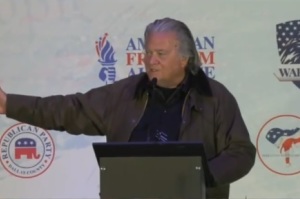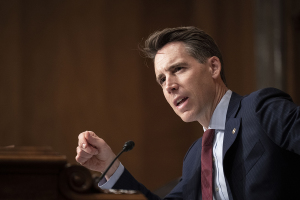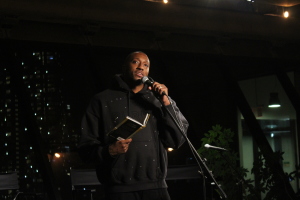Hate Speech: The New Inquisition
Recently, 12 members of the House of Representatives signed on to H.R. 3878, a bill that would launch an investigation into any "role" that might be played by radio, television, and the Internet to supposedly "encourage" the commission of hate crimes.
I have been following this issue, in all its various forms, for several years in Washington, and I have no hesitation in saying that this proposal is not only audacious, but it would, if passed, be downright dangerous. Such an "investigation" would be a prelude to proposed free-speech-infringing regulations that would be almost certain to follow.
Here is the convoluted background of this First Amendment-oppressive proposal.
In 1993, the National Telecommunications and Information Agency (NTIA), which were directed to conduct the same kind of investigation as is outlined in H.R. 3878, came out with its report. In its findings back then, however, the NTIA found itself fumbling for an adequate definition of the kind of "hate speech" that could theoretically lead to "hate crimes." The best it could do was to conclude, essentially, that such hate speech is "speech that creates a climate of hate or prejudice." As we can see, that gives no guidance to broadcasters whatsoever, let alone to citizen bloggers on the web. I am sure that any similar investigation by the NTIA will yield definitions that are no clearer. But lack of clarity is not the biggest problem. In 2009, advocacy groups, following up from the NTIA report, asked the Federal Communications Commission (FCC) to investigate conservative talk radio and television commentators for alleged incidents of "hate speech." Though that petition was never acted on, within the communications culture the use of misplaced "hate speech" labels to squelch expression by conservatives, proponents of traditional values, and Christians has occurred so frequently as to become legendary.
"Hate" labels (or their semantic equivalent) have been used by Facebook to shut down the Facebook pages of FOX News & Commentary pundit Todd Starnes and Gov. Mike Huckabee because they posted viewpoints consistent with conservative Christian principles. Apple used the same excuse to strip the late Chuck Colson's Manhattan Declaration, a statement of orthodox Christian conscience, from its iTunes App Store. And Google, in its running of YouTube, has blocked legitimate religious content for similar "hate speech" reasons. This scourge of free speech censorship has widened to the point of abject silliness: in one recent incident, Facebook decided that the posting of a fitness expert had to be blocked as hateful and her account taken down because she criticized the use of plus-size models in advertisements and had argued that such ads encouraged obesity.
It must be pointed out, though, that H.R. 3878 does add a caveat: any NTIA recommendations that issue from its investigation, the bill states, must be "consistent with the First Amendment to the Constitution." If that is really true, then we are all safe, because that would necessarily mean that there would be no politically motivated inquisition into radio, television, or the Internet as proposed, and there would be no more wrong-headed proposals about "hate speech;" in other words, America, there should be no H.R. 3878.



























